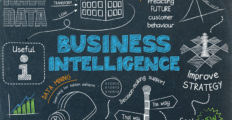As a fledgling online retailer, you may be aware of the success that the more established retailers enjoy. You notice that their websites run smoothly, or that they have a presence on mobile devices, usually in the form of an app, and are able to handle customer issues immediately. SaaS eCommerce platform is what makes this all possible.
What is SaaS, and How Does It Work?

SaaS stands for Software as a Service. This is a cloud-based method of software delivery that allows users to gain access to software applications as a Web-based subscription, or pay-per-use service. The provider of the software retains ownership of the apps, and it is their job to manage and deliver the software to the user. Software as a Service is also known as hosted apps.
Storage as a Service also uses the same abbreviation, but refers to the data storage model where a client leases storage space from a provider, transfers their data to the space, and accesses the data using the provider’s proprietary software. Storage as a Service is also known as cloud storage.
SaaS eliminates the need for organizations to install applications on their own computers or networks, and in turn unburdens the users from having to buy the necessary hardware and install the software, along with associated updates as they are released. At the same time, SaaS also removes the expense of support, provisioning and maintenance on the part of IT departments and other relevant parties.
SaaS is one of the three overarching categories of cloud computing. The other two are infrastructure as a service (IaaS), and platform as a service (PaaS). SaaS platforms have been around as early as 2010, when hosted shopping cart apps were in their infancy. Currently, SaaS has continued to evolve and improve to the point where they can run at larger scales and with far greater stability.
Advantages of SaaS e-commerce against manual labor
SaaS affords both suppliers and subscribers benefits, starting with the unmistakable reduced cost. SaaS providers can deploy, debug, update, and patch their software all within the cloud, software maintenance on their end comes at a reduced cost. For SaaS subscribers, they no longer need to worry about whether their version of the software is incompatible or outdated, nor do they have to keep paying licensing costs when the time comes to upgrade.
Maintaining a dedicated in-house IT staff to handle software issues, further saving money for the subscribers. Deployment of SaaS can occur to and from anywhere in the world, so long as Internet access is available to both the provider and the subscriber. The problem of manual burden of network management has been solved.
Meanwhile, subscribers have the leverage to avoid having the software entrenched in their operations. Getting “locked in” by the software vendor does not happen, and when it’s time for the subscribers to upgrade or replace the software with better options, they don’t take a huge financial hit in the process.
Another key benefit of SaaS is a highly significant increase in productivity for human resources teams. SaaS provides automated or self-service interfaces for applications related to logins, employment applications, and signing up for employee benefits.
For small and medium businesses, especially those for whom maintaining an HR staff is unsustainable, the cloud-computing environment of SaaS makes human resources efficient. Managing employee information on a real-time basis is all but impossible under the traditional paradigm of human resources software. Again, the scalability of SaaS HR applications cannot be overstated, as subscribers can implement the features they need when the time is right, and with little effort or learning curve involved.
Reasons to Consider SaaS Ecommerce Platforms For Your Online Business
- Low implementation costs. In addition to the reasons mentioned above, the fact that SaaS apps are curated and updated on a central server means you can expect the software to be stable straight out of the box, saving you the time and hassle of having to customize or tinker the software to your preferences.
- Easily scalable. Since SaaS is a subscription-based business model, you as a customer get to pick and choose the services you want to use, and take full advantage of the services you need. As your business grows, you can add the upgrades and new features a la carte, at the appropriate times.
- Integration is seamless. Aside from scalability, customization is very feasible as well, since SaaS providers allow you to integrate the cloud apps with the existing systems you already have in place. Both your hardware and software infrastructure can remain intact, and you can scale up without worrying about incompatibility issues.
- Future-proof. More apps and services are becoming cloud-based, and for good reason. For online businesses to set up and maintain their own servers to handle the vast amounts of data, the cost is to great to justify such an extreme financial commitment. The solution? More companies look towards outsourcing their storage needs to cloud server specialists.
- Wider reach. As the cloud grows, it matures. Since the beginnings of cloud computing, e-commerce has become more accessible and able to reach out to a larger customer base.
- High Adoption. Another advantage of SaaS eCommerce platform is this type of app is not only available on traditional computers, but also on mobile platforms. In line with the advances in eCommerce, SaaS applications are keeping up with the demands of retailers and their customers who are always on the go. The high adoption rates can also be attributed to the idea that most people are well versed in using the Internet on both desktop and mobile platforms to get things done.
Some Interesting Facts About SaaS
The original business model for SaaS is Salesforce.com, which started in 1999. Currently, Sales Force Automation SaaS remains the current market leader, amidst software giants such as Microsoft and Adobe making gains in market share.
The worldwide market for public cloud services, which includes applications, storage, processes, and infrastructure, is forecast to have a value of anywhere between $106B to $204B at the end of this year. Collectively, the worldwide market for public cloud services is showing a yearly growth rate of 16.5 percent.
The overarching philosophy seems to be that companies are looking to cut their internal IT costs across the board, leaving a gap to be filled by cloud-based services.
Following Microsoft and Adobe’s lead, software vendors in various industries, from health care, entertainment, fashion, transportation and hospitality, and many others are following the trend to convert their software into cloud-based offerings.
Other upward trends for SaaS include the prediction that as of 2020, over 60 percent of businesses will convert their current IT models to ones based in the cloud.
Another market entry includes Data as a Service, or DaaS. This works by providing companies with a high volume and a broad spectrum of cloud based data at a cheaper rate. For business adopting this technology, DaaS is expected to improve daily operations and decision making, by allowing more data to be transferred at a faster rate.
Shadow IT is the performance of IT tasks by departments other than those designated to execute them. Currently, this is one of the challenges faced by SaaS and cloud computing in general, but it comes with tremendous opportunity. Shadow IT exposes the lack of experience and knowledge that company executives have of the processes that go on in their companies. As new problems are identified, solutions arise. The end result: services will improve and become stronger and even more stable.
Some of the Best E-Commerce Platforms for SaaS
Aplicor develops cloud-enabled applications for your company’s core processes, from customer relationship management (CRM) to enterprise resource planning (ERP) and other e-commerce applications. The company boasts high-level expertise in wholesale, distribution, and financial service industries. Instead of worrying about infrastructure and integration, you can focus on your operations and supporting your own customers.
Shopify includes apps, tools, plugins, widgets and templates to help retail startups set up a fully customized and operational online store. As an online retailer, you can sell a wide variety of items, from clothes, accessories, collectibles, gadgets, and other products. The company also uses 128-bit SSL encryption to ensure the safety of credit card data, as well as Level 1 PCI compliant security to maintain the highest standards of security.
Braintree is a company that develops e-commerce tools for programmers, handling transactions for mobile e-commerce companies such as Uber and Airbnb. Braintree provides free PCI compliance verification without requiring users to be PCI compliant on their end.
Olark is a tool that allows website hosts to chat with their visitors through their existing instant messaging software. By streamlining the communication pipeline, Olark helps you boost sales and resolve customer issues, while providing analytical reports to help you assess the performance of your chats.
Cleverbridge offers full-service e-commerce on an international scale, driving the performance of B2C and B2B businesses worldwide. The company specializes in optimization, allowing you sell to a worldwide customer base.
Cloudy days are upon us, and SaaS is here to stay. Are you looking to cut costs with IT? Let us know by leaving a comment below.
























Leave a comment!